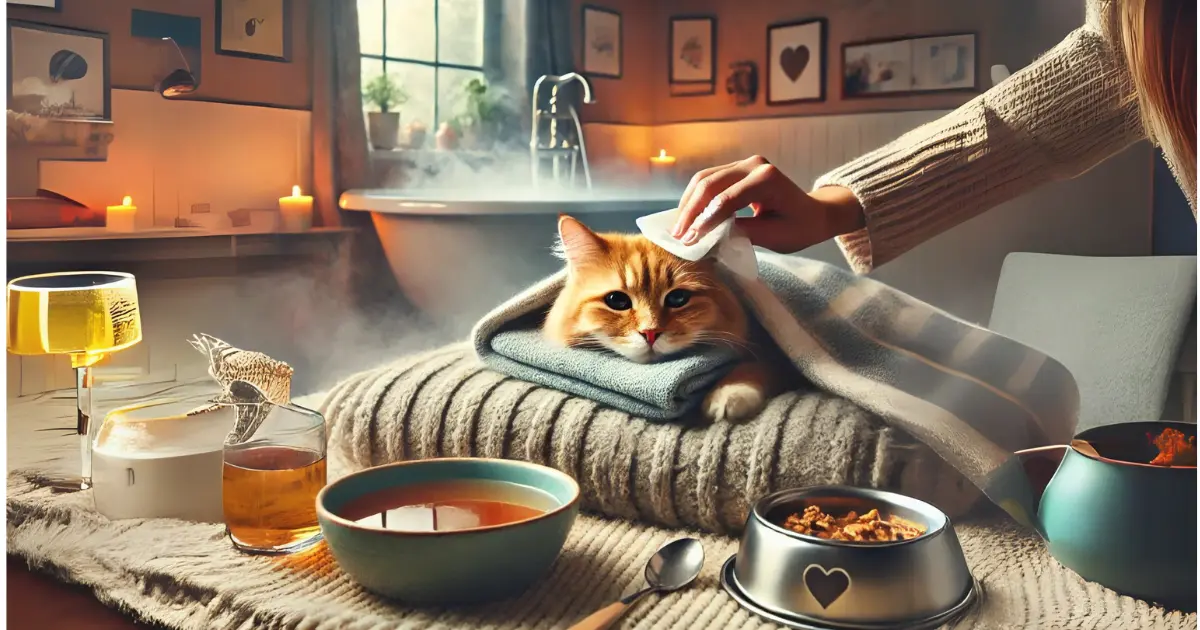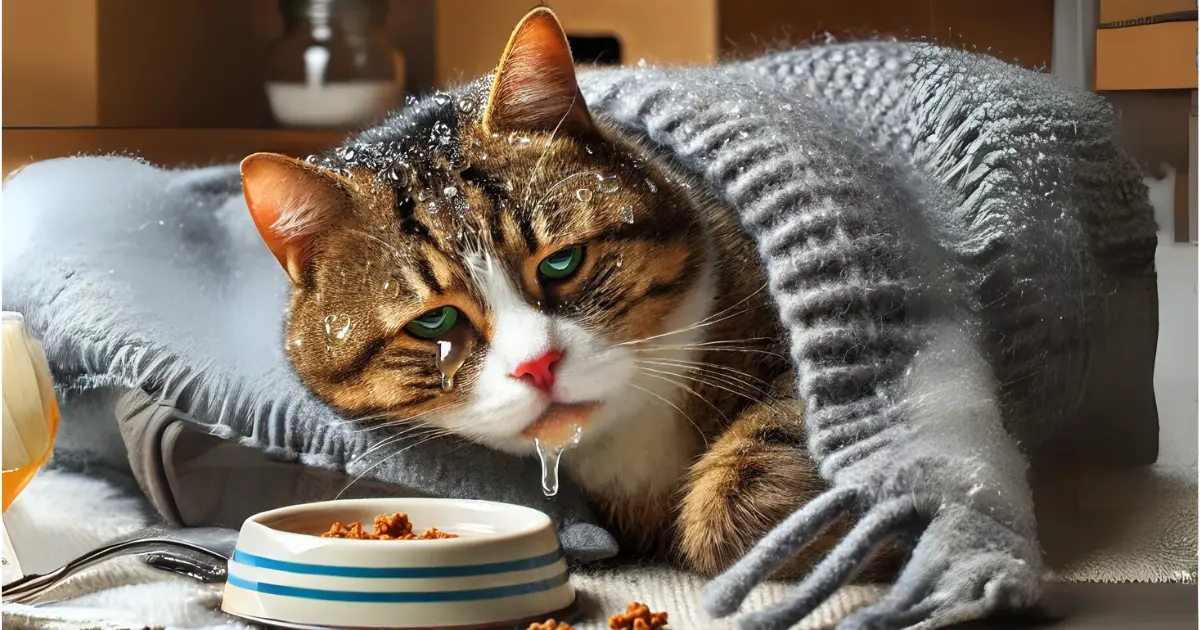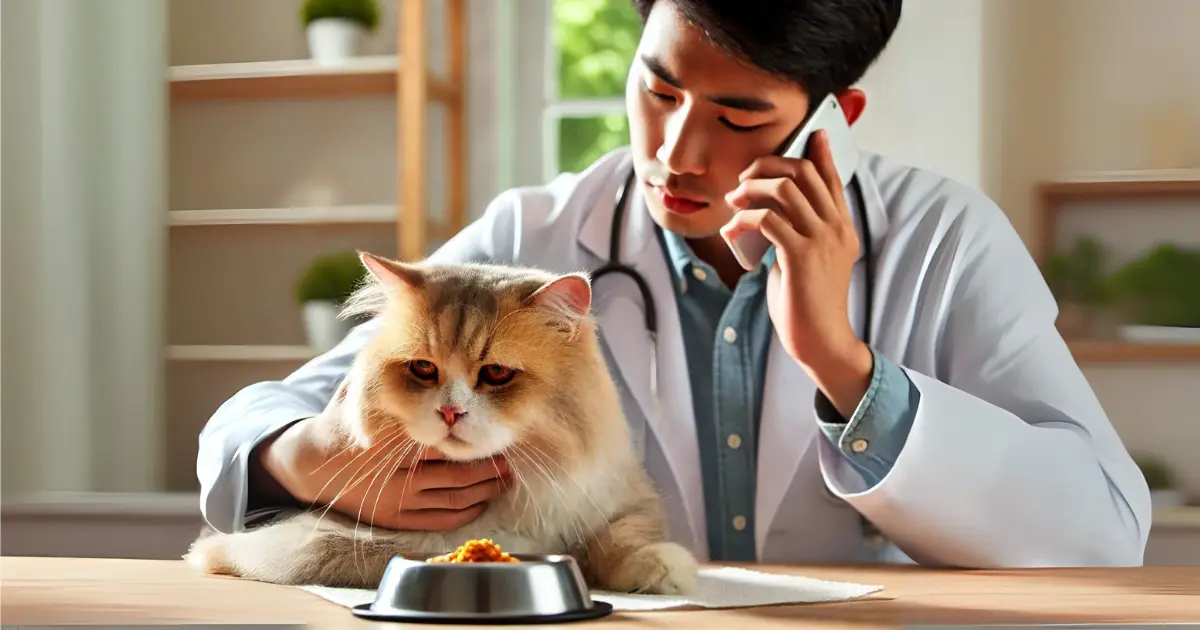Signs Your Cat Has a Cold: Symptoms and Effective Solutions
Published: 21 Jan 2025
Cats can be a bit mysterious at times, but they’re not immune to the occasional sniffle. Just like us, they can catch colds caused by viruses or bacteria, leaving them feeling tired, off, or a little more needy than usual. The good news? By spotting the cat cold symptoms early and offering them some extra love and care, you can help your feline friend feel better in no time. Here’s how to tell if your cat is under the weather and what you can do to help them recover.

Table of Contents
How to Tell If Your Cat Has a Cold
Cats aren’t exactly great at telling us they’re sick. Instead of words, they rely on subtle (and sometimes not-so-subtle) changes in behaviour or appearance. Here’s what to watch for:

1. Sneezing and a Runny Nose
If your cat sneezes more than usual or has a drippy nose, they might have caught a cold. Think of it as their version of the human sniffles. Keep an eye on the colour of their nose discharge—clear is usually fine, but anything thick or yellowish could mean a trip to the vet.
2. Watery or Irritated Eyes
Cats with colds often have watery or slightly red eyes. You might also notice them squinting or avoiding bright light. If you see any crusty build-up around their eyes, it’s a sign they’re not feeling 100%.
3. No Appetite
When cats can’t smell their food (thanks to a stuffy nose), they might not want to eat. If your cat skips a meal or two, it’s worth paying closer attention. More than a day without food? That’s a red flag.
If you’re concerned about what they should eat while recovering, read about Cat Nutrition.
4. Low Energy
Does your cat zoom around the house like a tiny tornado, but now it’s just sleeping in its favourite spot? Cats with colds tend to be less active, choosing naps over playtime.
5. Coughing or Breathing Issues
A cat with a cold might cough or breathe a bit noisily than usual. If its breathing seems laboured or makes raspy sounds, it could need more than home care.

What Can You Do to Help?
1. Make Them Comfortable
Your cat needs rest, so create a cosy spot where they can relax. A warm blanket and some peace can work wonders. Avoid loud noises or sudden activity around them.
For extra tips on keeping them snug, especially during cold months, check out How to Keep Cats Warm in Winter.
2. Tempt Their Taste Buds
Cats eat what smells good to them. If they seem uninterested in food, try warming their wet food to make it smell stronger. as heat increases the smell of a substance. A little unsalted chicken broth can also encourage them to drink more.
3. Clean Their Nose and Eyes
Gently wipe their nose and eyes with a damp, soft cloth to remove any crusty or sticky build-up. This will help them feel more comfortable and breathe easier.
4. Add Moisture to the Air
Just like humans, cats also come from a bit of steam. Please spend a few minutes with your cat in the bathroom while you run a hot shower (keeping them safely out of the water). The steam can help clear their sinuses.
5. Watch for Warning Signs
If your cat’s symptoms don’t improve in a few days or if it starts struggling to breathe, it’s time to call your vet.
How to Keep Your Cat Healthy
The best way to deal with colds? Avoid them altogether! Here’s how to give your cat the best chance at staying healthy:
- Stay on Top of Vaccines: Vaccinations protect against the most common respiratory infections.
- Keep Their Environment Clean: Regularly wash bedding, food bowls, and litter boxes.
- Encourage Good Nutrition: A balanced diet helps boost the immune system.
- Limit Exposure to Sick Animals: If you have more than one cat, separate them if one gets sick to prevent spreading germs.
Learn more about Natural Treatments for Cat Allergies to keep your cat sneeze-free.

When Should You Be Concerned?
Most cat colds clear up within a week, but sometimes, things can take a more serious turn. Reach out to your vet if your cat:
- Stops eating or drinking entirely
- Has thick or coloured nasal discharge
- Struggles to breathe
- Becomes extremely lethargic
For a detailed overview of feline upper respiratory infections, check out this helpful guide from VCA Animal Hospitals.
Final Thoughts
Your cat depends on you to notice when something’s not right. With some care and extra love, they’ll return to their playful, purring self before you know it. Have you noticed any of these symptoms in your cat? Don’t worry—start with these tips, and they’ll feel better soon!
FAQ
1. Can I catch my cat’s cold?
No, you can’t catch a cold from your cat. Their colds are caused by viruses that only affect cats, not humans.
2. Should I keep my sick cat away from my other pets?
Yes, it’s a good idea to separate your sick cat from others. Cats can spread colds to each other through sneezing or sharing food bowls.
3. How long does it take for a cat to feel better?
Most cats bounce back from a cold in about 7 to 10 days. If your kitty still seems sick after that, it’s time to call the vet.
4. Can I give my cat medicine from my own cabinet?
No, don’t give your cat human medicine—it can be dangerous. Always check with your vet before giving them anything.
5. Why won’t my cat eat when they have a cold?
Cats rely on their nose to enjoy food, so a stuffy nose makes eating less appealing. Warming up their wet food can help them smell it better.
6. Are cat colds more common in the winter?
Yes, just like humans, cats tend to catch colds more in colder months. A cozy, warm environment can help prevent this.
7. Can stress make my cat sick?
Absolutely. Stress can lower your cat’s immunity, making them more likely to get sick, including colds.
8. Is sneezing the only sign of a cold in cats?
No, colds come with other symptoms too, like watery eyes, nasal discharge, and fatigue. You might notice a mix of these signs.
9. How can I help my cat avoid catching a cold?
Good nutrition, regular vaccinations, and keeping their stress low are great ways to keep their immune system strong. Make sure they stay hydrated and comfortable.
10. When should I be worried about my cat’s cold?
If your cat stops eating, has trouble breathing, or seems sick for more than a week, don’t wait—get them to the vet. Better safe than sorry!

- Be Respectful
- Stay Relevant
- Stay Positive
- True Feedback
- Encourage Discussion
- Avoid Spamming
- No Fake News
- Don't Copy-Paste
- No Personal Attacks



- Be Respectful
- Stay Relevant
- Stay Positive
- True Feedback
- Encourage Discussion
- Avoid Spamming
- No Fake News
- Don't Copy-Paste
- No Personal Attacks





